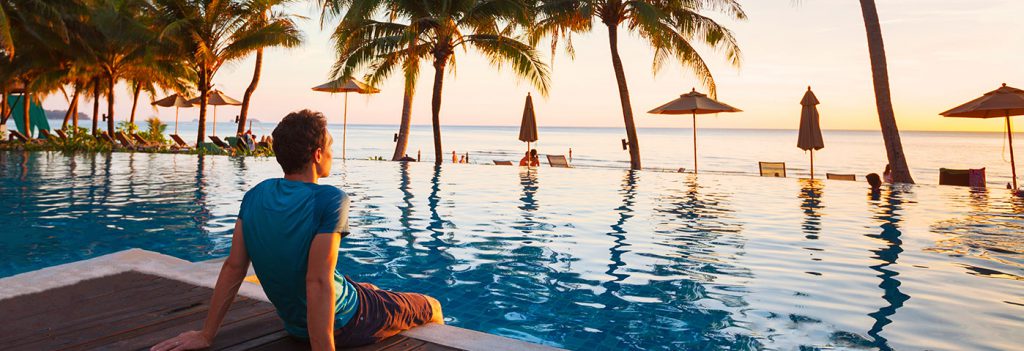Most of our time is defined by work. It is how we afford the things we need and want. But more than that – it’s assumed as a measure of self-worth. When politicians of all stripes want to appeal to people, they say they are there for Hard Working Families – the notion of hardworking as a definer of value is unquestioned. Written into our thinking is the idea that ‘work is its own reward’.
The key measure of our success is GDP, a measure of productivity. Even initiatives promoting people’s wellbeing or campaigns for a shorter working week are framed as being worth doing because they boost productivity. It doesn’t matter whether it is Communism or Capitalism, the central truth of the -ism is our relationship to work. It’s always ‘Work-ism’.
As Derek Thompson wrote in an article for The Atlantic earlier this year: “What is workism? It is the belief that work is not only necessary to economic production, but also the centerpiece of one’s identity and life’s purpose; and the belief that any policy to promote human welfare must always encourage more work.”
But what does this idolising of workism bring us? Stress on our minds and bodies. Stress on the planet, which workism sees not for its intrinsic wonder, but converts into ‘natural resources’. Time away from those people we love. And when we stop work, exhausted, a need to consume so as to justify to ourselves the time we spent working to build up the pay packets. According to Gallup’s 2013 State of the Global Workplace study of 142 countries, 87% of workers aren’t even engaged in their job.
What does workism mean for tourism?
At the most banal, we are the industry that fills up free time. The growth of the global travel industry parallels the growth in people’s free time. People with more time off have more time to go on holiday. People with more money have more money to spend on their holidays.
Unfortunately, this argument contains the same flawed prioritisation of work. In it, our holidays are defined by what they are not. They are not work. They are ‘time off’. A rest. A break. An escape. A chance to recuperate in order to be more productive again. We work to afford the holiday and the conspicuous consumption that demands. We holiday in order to restore ourselves to return to work.
This attitude diminishes the value of time spent not working. “Leisure is not a respite from effortful work,” write Ilan Stavans and Joshua Ellison in Reclaiming Travel. “Leisure is an encounter with the intrinsically good, the fundamentally and definitely human.”
The damaging impact of workism on tourism goes deeper still. Because we have framed our industry through workism and productivity, tourism has become more than just another business – it has become one of the ultimate vehicles for conspicuous consumption. Each year we need a new destination to wonder at. We believe it takes a long flight to find the elixir of holiday calm. Yet for the sake of the climate, for the sake of places all around the world suffering from mass international overtourism, and for the sake of actually giving people what they deeply want and need, we need to transform our approach to tourism to help people experience wonder and calm anywhere, anytime. We need to dispel the myth that the Roman author Pliny observed nearly 2,000 years ago, when he wrote: “We rush after what is remote and remain indifferent to what is nearby.”
This rush for the remote is enabled primarily by tying the development of tourism to the aviation industry’s unsustainable growth model. But tourism is not aviation, and it cannot model its future progress upon it. A truly transformative tourism has to be about more than just giving people more engaging experiences when they get out of the airport. It has to be about bringing tourism back down to earth and into people’s daily lives. As Jost Krippendorf wrote in The Holidaymakers, the challenge is: “to make that which is felt to be the counter-world a natural part of social reality, to have in short more holiday in everyday life.”
I wrote several months ago about how doctors in the Shetland Islands are prescribing nature cures such as bird walking and hiking. Giving people holiday experiences rather than pills. According to the Smithsonian magazine, the UK is exploring “the creation of a National Academy for Social Prescribing that will ensure general practitioners, or GPs, across the country are equipped to guide patients to an array of hobbies, sports and arts groups”. They are on to something here – namely that the essence of tourism is about making life better for those that need it most. It’s more than making better places. It’s making better lives.
This focus is essential for tourism’s future development. Despite the rhetoric of accessibility, the defining characteristic of tourism is that it is designed primarily as a luxury pursuit – a pleasure afforded only by a monied leisure class. 15% of people in the UK take 75% of flights. Only 5% of the world’s population has ever been on an aeroplane. Yet as organisations like the Family Holiday Association remind us, the deeper benefits of spending time on holiday are needed by everyone.
When American scientists surveyed employees to find out whether they would rather have two weeks additional salary or two weeks more holiday, twice as many people opted for the extra time. Countries with shorter working weeks come top of gender equality rankings. And as Rutger Bregman writes in Utopia for Realists, “a worldwide shift to a shorter workweek could cut the CO2 emitted this century by half.”
What if the solutions to the world’s biggest challenges come not from doing more work, but from doing less? What role does tourism play then?
